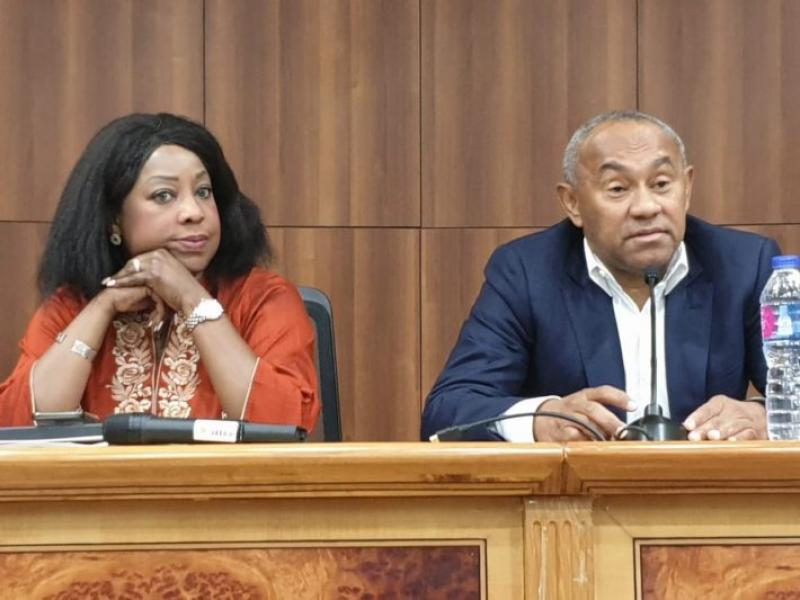By Andrew Warshaw
February 3 – She came, she saw, but what did she actually manage to conquer? FIFA secretary-general Fatma Samoura has ended her six-month secondment to clean up the administration of the scandal-plagued African Football Confederation (CAF) but the jury will be out for some time in terms what she achieved.
CAF’s executive committee (exco) voted on Sunday not to renew the mandate of Samoura who had been working as General Delegate for Africa for the past six months having been handed the role last August.
FIFA confirmed that her remit had come to an end February 1, saying that her mission had been “completed successfully … with the delivery of a set of findings, recommendations and proposals.”
Samoura had been parachuted in following a number of damaging controversies striking at the heart of African football’s leadership, whose president Ahmad Ahmad is theoretically under investigation by FIFA’s ethics division.
Ahmad has faced accusations of sexual harassment and bribery, as well as claims of personal and financial impropriety.
That CAF’s exco voted to return Samoura to Zurich in the end may not have been as big a surprise to CAF insiders as it what to those outside the inner circles. In December at the Club World Cup in Doha FIFA president Gianni Infantino had indicated that Samoura’s term was unlikely to be extended.
Certainly the close relationship between Ahmad and Samoura (Ahmad had brought FIFA and Samoura in) is understood to have become strained as Samoura asserted her authority internally. At the CAF Awards in Egypt, Samoura was seated away from the main delegates with the clear feeling given that a number of exco member and FAs were keen for her to leave.
FIFA put a brave face on Samoura’s return to HQ, saying changes implemented during her mission include enhanced financial controls, increased salaries for staff and new ethics structures. Interestingly, however, FIFA’s statement did not mention Ahmad. The progress of the FIFA Ethics investigations into Ahmad will now be watched even more keenly.
At Sunday’s meeting Samoura presented the outcome of the work conducted by a group of experts under her supervision. This focused on three pillars: Good governance, financial management and internal procedures (a 100-point “good governance” plan was proposed); efficient and professional organisation of competitions; and growth and development of African football.
Infantino similarly addressed the meeting but annoyed (some said insulted) many national federation presidents with a series of competition suggestions – including a change of frequency of the confederation’s blue riband AFCON tournament from two to four years. For a confederation of national association presidents who generally do as they are told by FIFA with very few questions asked, the tone and insistence of Infantino’s delivery left many openly of the opinion that he doesn’t know African football.
For Africa this could become a much bigger problem as FIFA has taken control of the broadcast rights sales to World Cup qualification matches but has failed deliver either revenue or broadcast coverage across a continent that up until that point had generally found a broadcast equilibrium.
In a press release signed by CAF’s secretary general Mouad Hajji, African football’s ruling body confirmed it had decided to “continue with the implementation of reforms.”
But with Samoura now returning to her former role, it remains to be seen whether the CAF leadership carries out its pledge to reform given almost weekly stories of image-damaging incidents, the latest being two countries pulling out of the ongoing Futsal Africa Cup of Nations because it is being staged in the disputed region of Western Sahara.
Contact the writer of this story at moc.l1745271779labto1745271779ofdlr1745271779owedi1745271779sni@w1745271779ahsra1745271779w.wer1745271779dna1745271779

